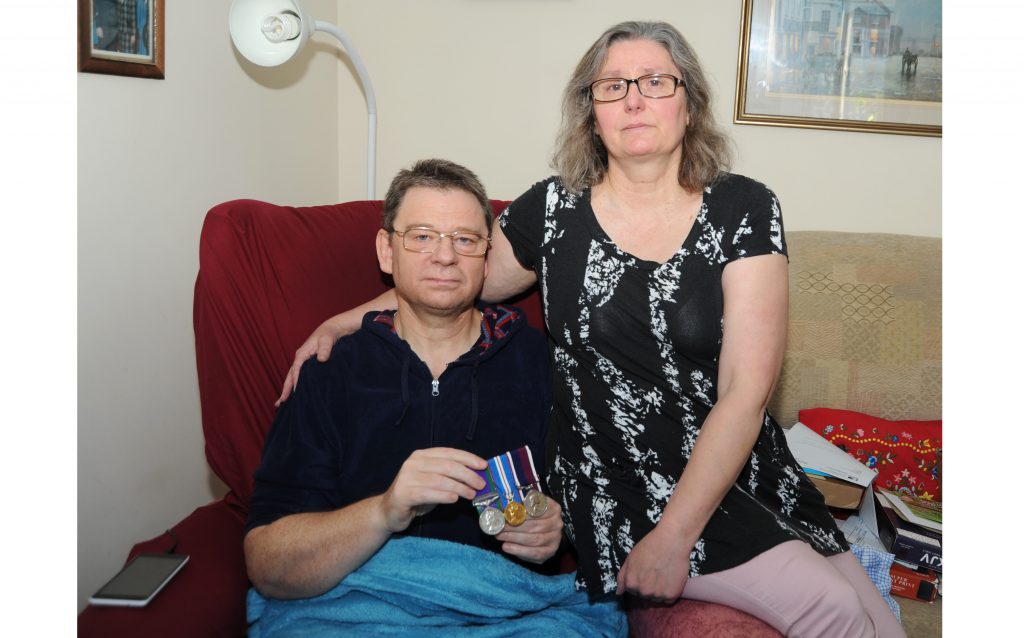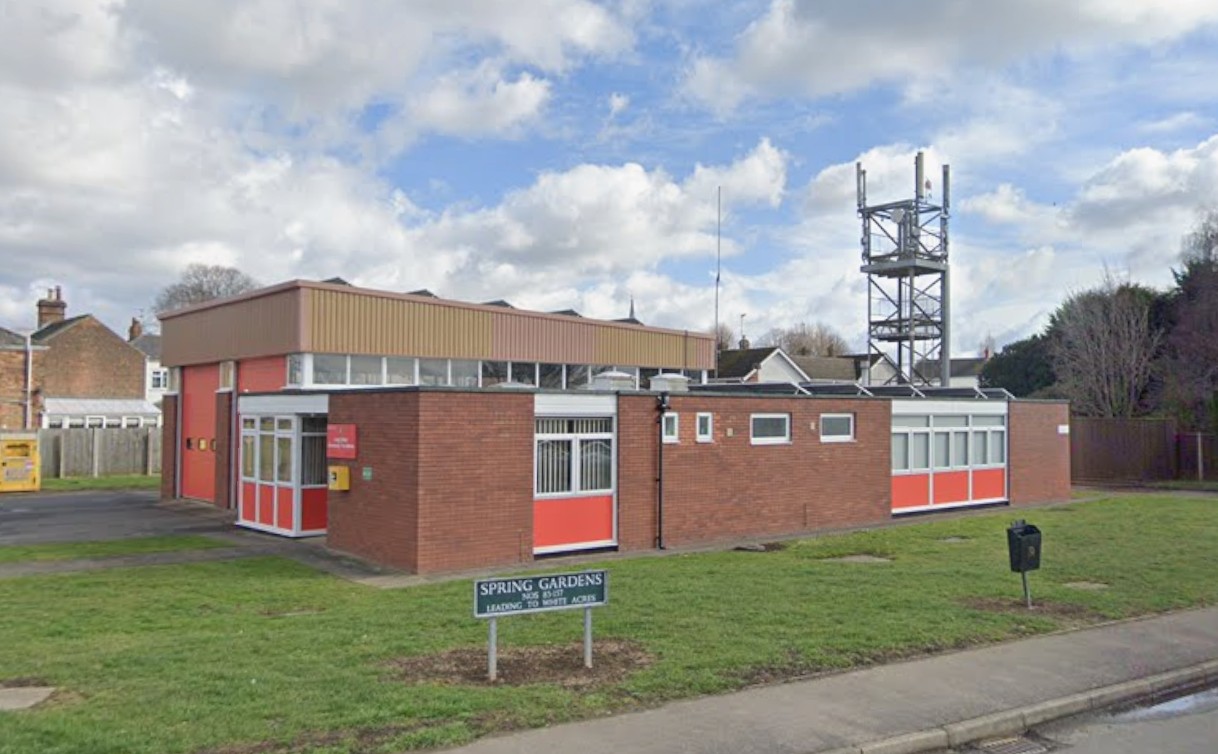When John McGeorge-Oanta was told he was suffering ME he was serving as a medic in the RAF and had four young sons – the news was devastating.
He struggled on varying reduced hours for four years before being invalided in 2006 facing a future of being cared for by his wife. He said: “It was like being presented with a mirror image of my age. I was 38 but felt 83 – probably older than that.”
Their boys then aged 13, 12 and ten-year-old twins, who saw their father repeatedly collapsing and having extended periods of being unresponsive, cried in their beds at night.
The family has managed to survive on benefits and John’s RAF pension, but now John and wife Tica, fear how they will pay for their private rented home after a new benefits assessment ruled he is not eligible for a Personal Independence Payment or Disability Living Allowance Care Component.
Tica said: “We used to try to make light of it all for the boys. They got used to having one present each for Christmas – they didn’t mind. But now we are being made to feel like beggars.
“We have asked for a council house, but been told we are not a priority because we pay our bills. We have to be bad citizens to qualify for help.”
She added: “I am embarrassed to be appearing in the newspaper, but how many people are in our situation and don’t have the courage to speak up?”
On good days John can go out – he can even drive and opts to have a manual mobility car to work his joints and muscles further when he has ‘good’ days as well as to ensure he is not tempted to get behind the wheel on bad days. On those days, which are frequent, he cannot leave his reclining armchair for fear of injury from a fall.
Tica has had to undergo a back operation after trying to catch him on a previous occasion.
There is no cure or definitive treatment for the cause of ME and in 2014 John made the decision to stop taking a cocktail of drugs he’d been on to try to help his symptoms as they were destroying his liver.
The family has learned to manage alone – yet those decisions have counted against them as, on a points based benefits system that rates need based on the drugs you take, hospital admissions and mobility scores, he is deemed fit.
Sonya Chowdhury, chief executive of Action for ME, said: “Sadly John’s story is not uncommon. People with ME who contact our specialist Welfare Advice and Support Service frequently tell us that the fluctuating nature of their symptoms, and the complexity of their disability, is not properly understood by those making benefit decisions.
“This can have a devastating effect not just on the individual with ME, but on their partners and families as well, as many are missing out on the vital support they are entitled to.”
Action for ME estimate around 2,800 people in Lincolnshire have ME.
A Department for Work and Pensions spokesman said the PIP assessment criteria have been designed to take account of the impact of all impairments on individuals’ ability.
Since PIP was introduced nearly 1.8m decisions have been made. Out of these just 6% have been appealed and only 3% have been overturned.
John and Tica now plan to challenge the decision at tribunal.
John Hayes, South Holland and The Deepings MP, said: “Clearly we want to do our best by people who have given service to the country. I am more than happy to write to the tribunal making that point and supporting his case.
“Each case needs to be judged on its merits and that is what the system needs to do and must do.”
Previous report: Big benefits cut for invalided RAF veteran due to ‘monstrous’ assessment system







